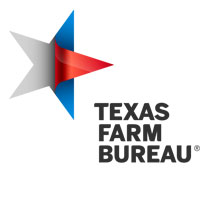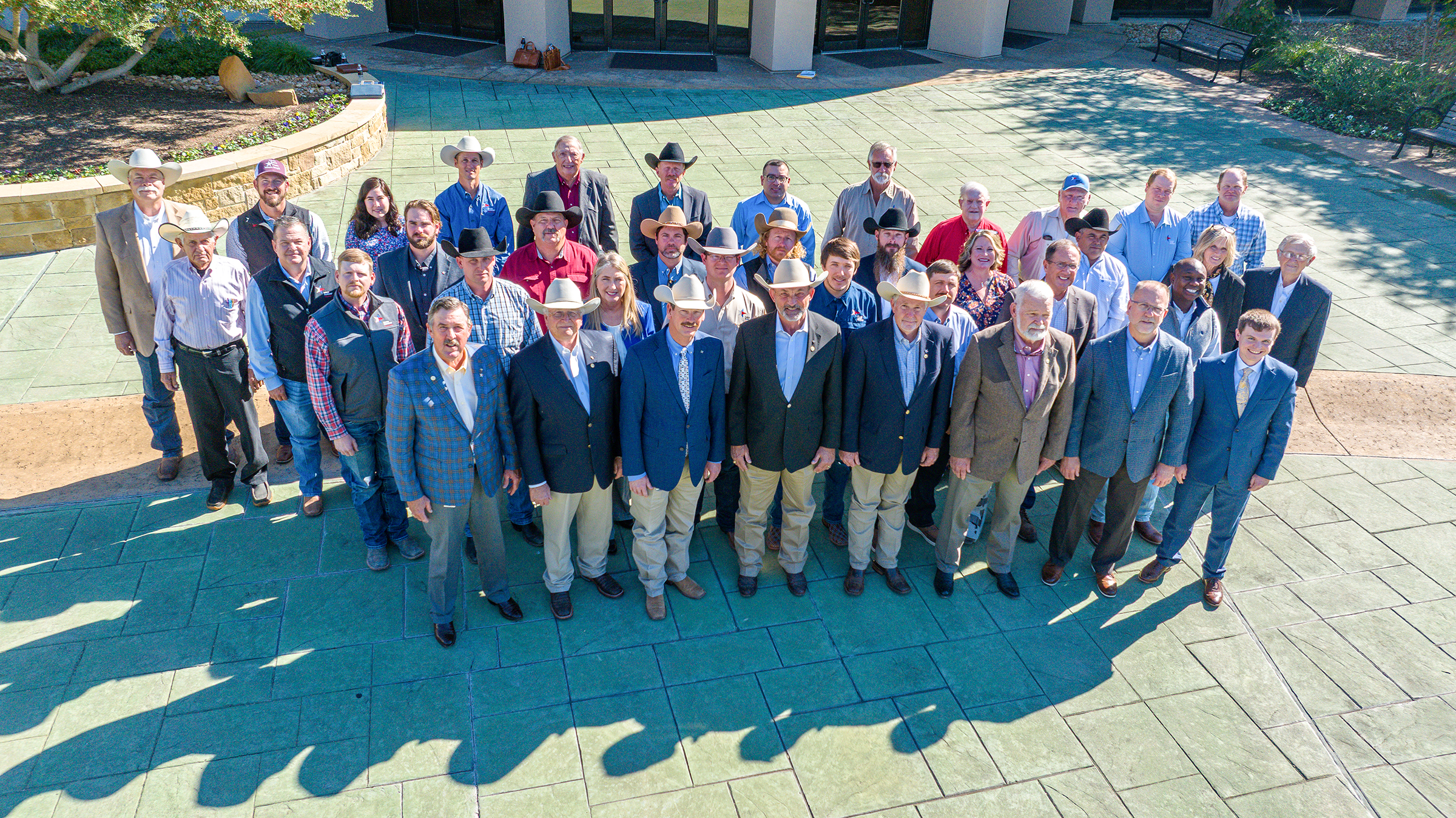TFB Resolutions Committee discusses ag issues
(WACO, Texas)—Invasive pests, artificial intelligence and international water treaties were among the topics reviewed by the Texas Farm Bureau (TFB) Resolutions Committee Nov. 3-4 in Waco.
The committee, comprised of 41 TFB members representing diverse sectors of Texas agriculture, spent two days reviewing, deliberating and consolidating more than 180 resolutions to both state and national policies submitted by county Farm Bureaus across the state.
“Committee members tackled a wide range of issues that affect farmers, ranchers and rural communities,” said Sam Snyder, TFB vice president and chair of the Resolutions Committee. “These ideas were surfaced at the county level from farmers and ranchers. That’s what makes this process truly a grassroots effort.”
The committee addressed invasive pests, including feral hogs and the New World screwworm.
Committee members supported a resolution to formalize an agreement between the Texas Parks and Wildlife Department game wardens and the Texas Animal Health Commission to establish a joint effort between the agencies to enforce feral swine movement regulations.
The growing risk of the New World screwworm prompted support for resolutions focused on eradication efforts and research initiatives.
“Invasive species like feral hogs and the New World screwworm can devastate livestock herds and wildlife populations,” Snyder said. “They threaten animal health, damage property and strain rural economies. Supporting strong, coordinated control and prevention measures is critical to protecting Texas agriculture.”
Committee members recommended creating a new section in the organization’s policy book dedicated to artificial intelligence (AI).
“There were numerous proposed resolutions that focused on artificial intelligence from data sources to transparency and accuracy,” Snyder said. “AI is becoming part of everyday life, and we want to make sure that when people use it to learn about agriculture, the information is based on facts and science, not assumptions or bias.”
The committee supported resolutions calling for AI system to disclose how responses are generated and to rely on reputable resources, such as the U.S. Department of Agriculture, when generating responses related to farming, land stewardship, food safety, water or the environment.
As solar panels continue to crop up across Texas, the committee discussed the growing impact on farmland. Members supported a resolution encouraging the use of agrivoltaics—dual-use systems that allow for energy generation while maintaining agricultural production.
“Agrivoltaics give landowners the opportunity to produce renewable energy and still grow crops or raise livestock, keeping the land productive for future generations,” Snyder said.
Educational efforts promoting the benefits of natural plant and animal fibers were covered by both state and national proposed policy resolutions.
“Natural fibers like cotton and wool are sustainable, renewable and part of our state’s heritage,” Snyder said. “Supporting consumer education on their value helps strengthen markets for Texas producers and highlight the role of agriculture in our everyday lives.”
Committee members also voiced support for including enforceable provisions and remedies for non-compliance with water treaties in trade agreements between the U.S. and Mexico or Canada. That recommendation comes as Mexico continues to fall behind on water deliveries under the 1944 Water Treaty.
Other national resolutions focused on diesel exhaust fluid systems, the National Scrapie Eradication Program and food labels.
The policy recommendations will be considered by TFB voting delegates during the business session of the organization’s 92nd Annual Meeting Dec. 5-7 in Arlington.
State resolutions adopted at the TFB annual meeting become policies that guide the organization. National resolutions, if adopted by voting delegates at the TFB annual meeting, are sent to the American Farm Bureau Federation (AFBF) Resolutions Committee for consideration.
Resolutions supported by the AFBF Resolutions Committee and approved by AFBF voting delegates in January provide a roadmap for the national organization.
For a tentative agenda and more details on TFB’s annual meeting, visit texasfarmbureau.org/annualmeeting.
The 2025 Texas Farm Bureau Resolutions Committee met Nov. 3-4 in Waco to review proposed policy resolutions from county Farm Bureaus (CFB) across the state.
Row 1 (left to right): Russell Boening TFB president; Sam Snyder, TFB vice president and Resolutions Committee chairman; Jared Blankenship, TFB District 1 state director; Greg Buenger, DVM TFB District 3 state director, John Griffith TFB District 9 state director, Stuart Traylor TFB District 11 state director, Brian Jones TFB District 13 state director; and Ryan Yeatts, YF&R Advisory Committee vice chairman.
Row 2 (left to right): Morgan Crabtree (Sherman CFB), Shawn Elliott (Childress CFB), Angela Arthur (Crosby CFB), Graham Henley (Lamb CFB), Cody Lowe (Young CFB), Mitch Lundy (Archer CFB), Scott Born (Ellis CFB) and Robert Scott (Fannin CFB).
Row 3 (left to right): Rex Coulter (Smith CFB), Jerry Moody (Titus CFB), Brantly Efurd (Camp CFB), Randal Hartman (Pecos-Reeves CFB), Stephen Loyd (Tom Green CFB), Cody Swindall (Menard CFB), Mathew Ischar (Runnels CFB), Misty Needham (Callahan-Shackelford CFB), Monte Sanchez (Brown CFB), Lana McDermott (Milam CFB), Wilbert Vorwerk (Williamson CFB) and Caleb Wagner (Hamilton CFB).
Row 4 (left to right): Ted Britton (Anderson CFB), Jimmy Reed (Anderson CFB), Lizeth Cuellar Olivarez (Webb CFB), Kason Haby (Medina CFB), Rodney Kott (Gillespie CFB), Chance Leopold (Brazoria-Galveston CFB), Justin Saenz (Montgomery CFB), Denis Berger, Jr. (Lavaca CFB), Edward Hrna (Wilson CFB), Larry McKee (Guadalupe CFB), Gus Bluntzer (Nueces CFB) and Spence Pennington (Willacy CFB).


